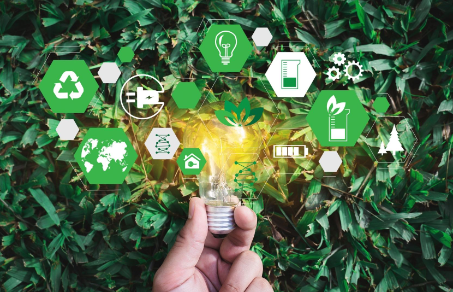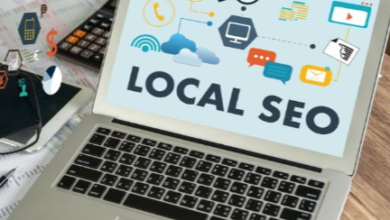Implementing Sustainable Practices in B2B Operations: Challenges and Benefits

In today’s business landscape, sustainability has become more than just a buzzword—it’s a strategic imperative. From reducing carbon footprints to promoting ethical sourcing, companies across industries are increasingly integrating sustainable practices into their operations. However, implementing sustainability in Business-to-Business (B2B) operations poses unique challenges and offers distinct benefits. In this article, we’ll explore the intricacies of incorporating sustainability into the operations of a WordPress development agency, emphasizing its role as a core component of the business strategy.
Understanding Sustainable Practices
Before delving into the challenges and benefits, it’s crucial to grasp what sustainable practices entail. Sustainability in business encompasses various aspects, including environmental, social, and economic considerations. For a WordPress development agency, this might involve using eco-friendly hosting services, promoting telecommuting to reduce commuting emissions, or ensuring fair labor practices within the organization and its supply chain.
Challenges in Implementing Sustainable Practices
Despite the evident benefits, integrating sustainability into B2B operations is not without its hurdles. One major challenge is the initial investment required to adopt sustainable technologies and processes. For a WordPress development agency, this might involve investing in energy-efficient servers or transitioning to renewable energy sources, which can incur substantial costs upfront.
Another challenge lies in navigating complex supply chains. As B2B businesses often rely on numerous suppliers and subcontractors, ensuring sustainability throughout the entire supply chain can be daunting. This includes vetting suppliers for their environmental and social practices, which requires time and resources.
Moreover, there may be resistance from stakeholders who prioritize short-term profits over long-term sustainability. Convincing clients, investors, and even employees of the importance of sustainability can be an uphill battle, especially in industries where traditional practices reign supreme.
Benefits of Sustainable Practices
Despite these challenges, the benefits of integrating sustainability into B2B operations are manifold. First and foremost, sustainability can be a powerful differentiator in a competitive market. A WordPress development agency that actively promotes its sustainable practices may attract environmentally-conscious clients who prioritize working with socially responsible partners.
Furthermore, embracing sustainability can drive innovation and efficiency. By optimizing resource usage and minimizing waste, businesses can uncover new cost-saving opportunities and enhance operational resilience. For instance, adopting agile development methodologies not only reduces time-to-market but also minimizes resource consumption—a win-win for both the business and the environment.
Moreover, incorporating sustainable practices can enhance brand reputation and foster customer loyalty. In an era where consumers are increasingly scrutinizing the ethical and environmental impact of their purchases, businesses that demonstrate a commitment to sustainability stand to gain trust and goodwill from their audience.
Integrating Sustainability into The Business Strategy
To truly reap the benefits of sustainability, it must be integrated into the core of the business strategy. This involves setting clear sustainability goals, establishing metrics to track progress, and fostering a culture of sustainability throughout the organization.
For a WordPress development agency, this might entail incorporating sustainability criteria into vendor selection processes, prioritizing projects with a positive environmental impact, and regularly communicating sustainability initiatives to clients and stakeholders.
By embedding sustainability into every facet of the business strategy, a WordPress development agency can not only mitigate risks and seize opportunities but also contribute to a more sustainable future for the planet and society as a whole.
Steps to Implement Sustainable Practices in B2B Operations
Assessing Current Operations: Before implementing sustainable practices, it’s essential to conduct a comprehensive assessment of current operations. This includes evaluating energy consumption, waste generation, supply chain practices, and other areas that impact sustainability. This assessment provides a baseline from which improvements can be measured.
Setting Clear Goals: Establishing clear, measurable sustainability goals is key to achieving progress. These goals should align with the agency’s broader business strategy and address specific areas for improvement, such as reducing energy use or sourcing materials from ethical suppliers.
Engaging Stakeholders: Involving stakeholders, including employees, clients, suppliers, and investors, is crucial for successful implementation. Communicate the agency’s sustainability vision and goals, and seek input from stakeholders to gain buy-in and support for sustainable initiatives.
Implementing Sustainable Solutions: Based on the assessment and goals, the agency can begin integrating sustainable practices into its operations. For a WordPress development agency, this could involve using energy-efficient servers, reducing paper usage, and prioritizing projects that align with environmental and social values.
Monitoring and Reporting Progress: Regular monitoring and reporting of sustainability metrics are vital for tracking progress and identifying areas for further improvement. Sharing progress with stakeholders can also help build trust and credibility.
Continuous Improvement: Sustainability is an ongoing journey that requires continuous evaluation and adaptation. The agency should remain open to new opportunities for improvement and stay informed about emerging trends and best practices in sustainable operations.
See Also: Commodities Trading Platforms: How to Choose the Right Option for You
The Future of Sustainability in B2B Operations
As sustainability continues to gain prominence in the business world, B2B operations are likely to face increasing pressure to adopt sustainable practices. Regulatory changes, shifting consumer preferences, and the need for long-term business resilience are all driving factors that will shape the future of sustainability in B2B operations.
For a WordPress development agency, staying ahead of these trends will be essential for success. By proactively integrating sustainable practices into operations and maintaining a commitment to environmental and social responsibility, the agency can position itself as a leader in the industry.
Ultimately, the future of sustainability in B2B operations lies in a holistic approach that combines innovative solutions with ethical practices. Agencies that embrace this approach will not only thrive in a changing business landscape but also contribute positively to the well-being of the planet and society.
Collaboration and Partnerships
Another crucial aspect of implementing sustainable practices in B2B operations is fostering collaboration and partnerships. By working with like-minded organizations and stakeholders, a WordPress development agency can amplify its impact and share resources for mutual benefit. Collaborating with sustainable suppliers, joining industry associations focused on sustainability, and participating in community initiatives can all contribute to a more comprehensive and impactful approach to sustainability.
Adapting to Change and Innovation
Sustainability is an evolving field, and B2B operations must adapt to keep pace with emerging trends and innovations. For a WordPress development agency, this might mean staying abreast of advancements in green technologies, such as cloud computing or data center efficiency. By embracing innovation and being open to change, the agency can continually enhance its sustainability efforts and strengthen its position in the market. Being proactive in adopting sustainable practices not only ensures compliance with future regulations but also positions the agency as a forward-thinking, responsible business partner.
Conclusion
Implementing sustainable practices in B2B operations presents both challenges and benefits for a WordPress development agency. While initial investments and stakeholder resistance may pose hurdles, the long-term advantages—including differentiation, innovation, and enhanced reputation—far outweigh the costs. By integrating sustainability into the business strategy, WordPress development agencies can not only future-proof their operations but also play a pivotal role in driving positive change within their industry and beyond.




